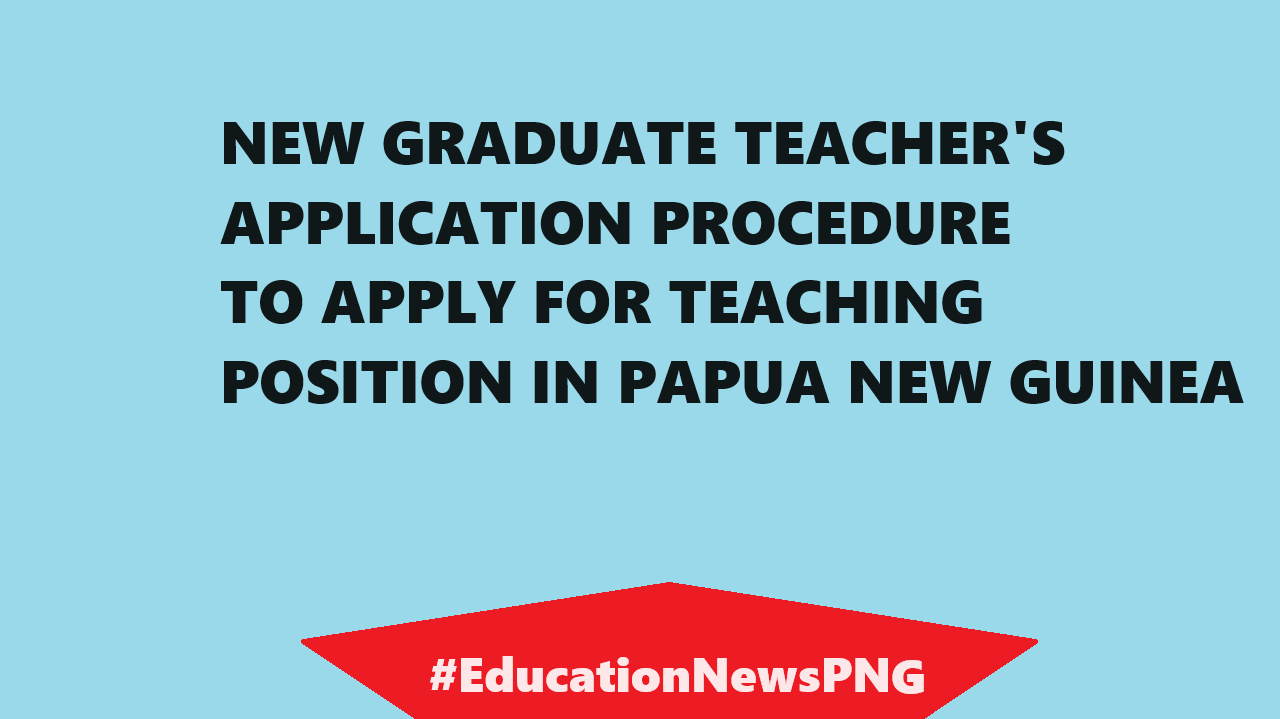 If you are a new graduate embarking on a fulfilling teaching career in either in the Primary or Secondary School sectors within Papua New Guinea' whether in government or church-run educational institutions, you need to follow the procedures outlined below to make your application. Requirements: Educational Credentials:
7 Comments
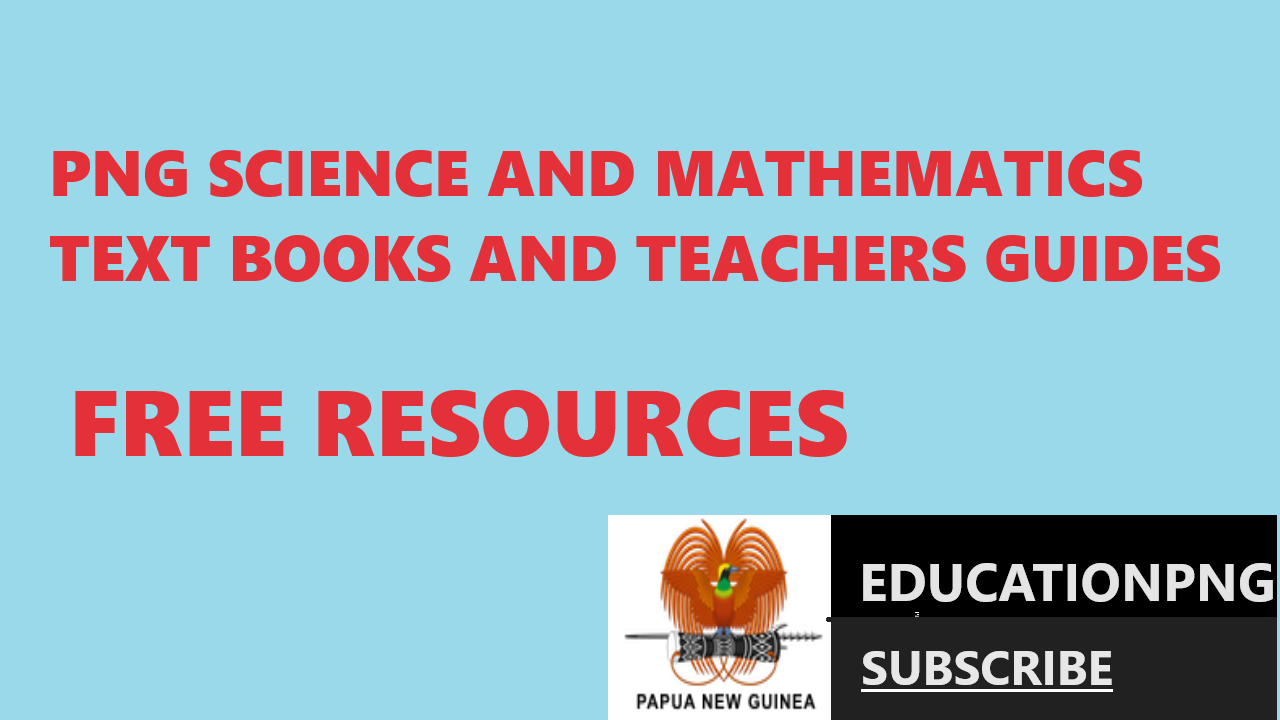 PNG Science And Maths Text Books, Teachers Guides PNG Science And Maths Text Books, Teachers Guides Text Books The National Textbook serves as a comprehensive resource offering a diverse range of activities and ideas, facilitating learning in collaboration with teachers or independently as a self-directed learner. The acquired learning skills and processes are intended to serve as instrumental tools for grasping the concepts presented in each subject. Students are strongly encouraged to apply their acquired knowledge on a daily basis, fostering continuous practice both within the school environment and at home with family and friends. Teacher's Manual The Teacher's Manual is specifically crafted for primary school educators, serving as a valuable aid to assist and guide them in planning and delivering lessons aligned with the National Textbook. Tailored to meet the content standards stipulated in the syllabus, the Teacher's Manual is instrumental in achieving the implemented curriculum. It offers pertinent teaching and learning content, encompassing concepts crucial for primary school teachers to uphold standardized lessons throughout daily, termly, and yearly teaching and learning activities. The manual comprehensively addresses essential aspects of what to teach, how to teach, and what to assess. It is imperative that these Teacher's Manuals are utilized in conjunction with the National Textbook as the official resource for teaching in all primary schools across Papua New Guinea, aligning with the government's commitment to the policy of "No child left behind in quality education." 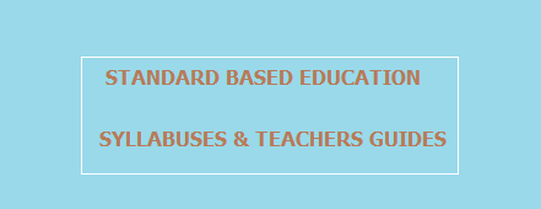 PNG Standard Based Education (SBE) School Syllabus And Teachers Guides PNG Standard Based Education (SBE) School Syllabus And Teachers Guides The Papua New Guinea Standard based Education (SBE) School Syllabuses are available on the link below. The Syllabuses follow the Standard Based Curriculum (SBC) that were developed by the Curriculum Division of the Education Department. The SBE Syllabuses are for
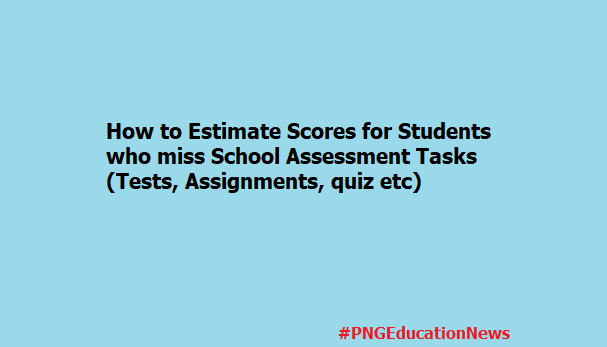 The estimation of Marks for students assessment is crucial in fairly rating the student's performance in school assessments. That is, if a student misses an assessment, then every effort must be made to estimate a fair value for the missing mark(s) and an estimated score should be awarded in place of the missing mark in all subsequent procedures. Schools throughout the country must use the following rules to determine estimated scores. This applies to
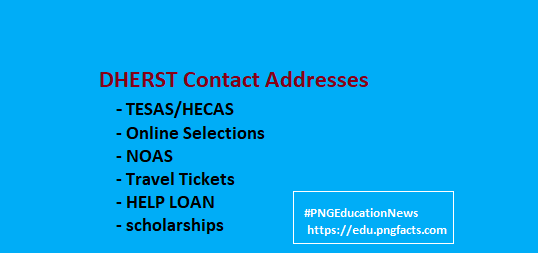 The PNG Department of Higher Education, Research, Science and Technology - DHERST can be contacts on the following contact phone numbers and email addresses if you have enquiries on
There are several ways mal-practices or cheating in examination occur. Here are few of them.
Department of Education P.O Box 446 Waigani National Capital District Papua New Guinea Phone: +675 301 3300 Fax: +675 325 4648 Email: [email protected]
The National Training Council of Papua New Guinea
The National Training Council is a tripartite organisation with representation form government, industry, unions and NGOs. It comes under the responsibility of the Ministry of Labour And Industrial Relations. The membership of the Council consist of the Chairperson, who is presently the Secretary of the Department of Labour and Industrial Relations; Secretaries from the Department of Personal Management, Finance, Commission of Higher Education, and Education; the Director of PNG Institute of Public Administration; the president of PNG Trade Union Congress; the President of Public Employees Association; the President of Employees Federation; a senior representative from the interests of women; President of PNG Training and Development Society; Director of the NTC Secretariat. The appointment of these members is made under the Regulatory Statutory Authorities Act 2004 for a period of not exceeding three years. Reporting to the Council is the NTC Secretariat headed by a Director, with support from the senior management staff which includes three Assistant Directors, an Executive Officer, Budget and finance Officer, a Project Officer and the administrative support staff. (See organisation structure). Hela Undialu Education Foundation (HUEF)is iniated to help the native Hela tertiary students attending various institutions in Papua New Guinea and abroad begining in 2018. It is one of the very important initiative by Hela Provincial Governor, Hon. Philip Undialu to ease the burdens poor parents facing to pay fees for their children. HUEF is driven with a slogan: "Helping you learn today, to lead tomorrow"
The Papua New Guinea Curriculum is being changed from Outcome Based to Standard based. Below are the school syllabus used in schools across the country.
Curriculum
|
Education ResourcesMake available PNG Education Resources online. Use this database to access PNG Education Resources Database. Categories
All
|
- Home
- Education News
- Education Talk
- Exam Questions
- Teaching Jobs
- Scholarships
- Education Department
-
Study in PNG
- Study Abroad
- DHERST
- Institutions
- Payslips Online
- Curriculum
- About
- Contact
- School Profile Application
- Research & References
- Links
- Disclaimer
- Privacy Policy
- PNG Education Resources
- MyPaySlip App for PNG Teachers & Public Servants
- L&L Exam Questions
- Maths A Exam Questions
- Maths B Exam Questions
-
List of Primary Schools in Gulf Province
- Primary Schools in Western Province
- Primary Schools in Milne Bay Province
- Primary Schools in Oro Province
- Primary Schools in Southern Highlands Province
- Primary Schools in Eastern Highlands Province
- Primary Schools in Simbu Province
- Primary Schools in Western Highlands Province
- Primary Schools in West Sepik Province
- Primary Schools in East Sepik Province
- Primary Schools in Madang Province
- Primary Schools in Morobe Province
- List of Primary Schools in West New Britain Province
- List of Primary Schools in East New Britain Province
- List of Primary Schools in New Ireland Province
- List of Primary Schools Schools in Bougainville
- List of Primary Schools in Manus Province
- List of Primary Schools in Enga Province
- List of Primary Schools in Hela Province
- List of Primary Schools in Jiwaka Province
- Grade 8 Examination Questions online
-
Grade 12 Examination Topics and Units
- Chemistry Exam Units
- Physic Exam Topics & Units
- Biology Exam Topics and Units
- Language and Literate Examination Topics and Units - PNG
- PNG Advance Mathematics Examination Topics & Units
- General Mathematics Examination Topics and Units - PNG
- PNG Economics Examination Topics and Units
- PNG History Examination Topics and Units
- Applied Science Exam Topics
- Geology Examination Topics
- Geography Exam Topics
- Legal Study Exam Topics
- Business Studies Exam Topics
- ICT Examination Topics & Units
- Accounting Examination Topics
- Types of Job Interviews
- Simbu Teachers College
- Study at UOG
- STEM Education PNG
- FODE Admission
Home : About : Education News : Research Papers : Bibliographies : Disclaimer : Institutions : Contact Us : Privacy Policy
|
Search Education Database >>
|
|

 RSS Feed
RSS Feed

